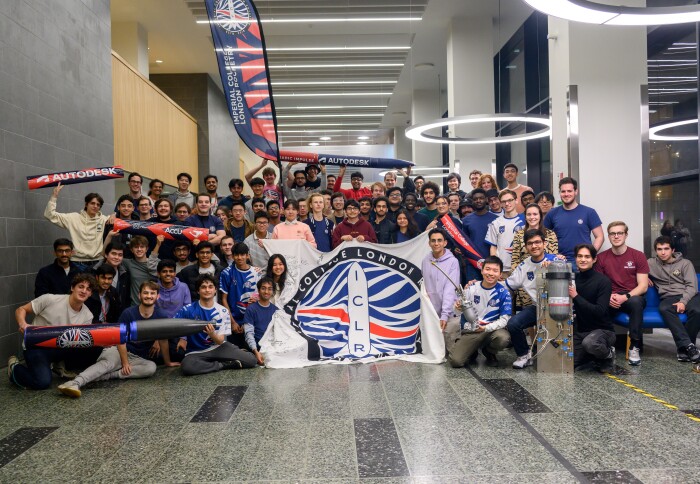Imperial student rocketry team win international challenge
by Ayesha Khan

Students at Imperial have claimed two $15,000 prizes for their successes in the Lander Challenge.
Imperial College London Rocketry (ICLR), a student-led initiative, is dedicated to building, testing and launching experimental rockets, providing students with invaluable experience and skills relevant to the aerospace industry.
The team recently achieved victory as they became the second and third team in the world to claim two $15,000 prizes for the Throttleable Hotfire Challenge, set by Lander Challenge. This win demonstrates the technical expertise of the team and the incredible engineering of their systems and the THANOS-R engine.
With only three prizes available for each challenge stage, ICLR’s performance has reinforced their status as an innovator in the field.
Throttleable Hotfire Challenge
The Challenge is a rigorous test of advanced rocket control. To succeed teams must operate their engine within 5% of its target thrust profile. Altering precisely between 240kg and 80kg of force.
Precise throttle control is critical for managing liftoff, adjusting flight trajectories and developing self-landing technologies – an advanced capability previously only demonstrated by SpaceX and Blue Origin.
On their success, undergraduate Aeronautics student and ICLR Propulsion Technical Lead said: "Winning the CPLC challenge through a series of 11 hot fires reflects the innovative engineering and unwavering dedication of every member. This accomplishment demonstrates the incredible adaptability of the team to new challenges, and their ability to engineer such systems with reliability."
ICLR's success follows other achievements including, but not limited to:
- becoming the first European student team to perform Thrust Vector Control (TVC) with a liquid rocket engine
- winning $15,000 for completing the Thrust Vector Control (TVC) Hotfire Lander Challenge
Funds from these achievements will help advance ICLR’s projects, including the development of their flagship rocket and a self-landing reusable hopper rocket. Additionally the prize money will support enhancements to their testing facilities.
ICLR’s success is supported by academic and industry partners, including Dr Aaron Knoll from the Department of Aeronautics and their main sponsors Autodesk and Alloyed.
Article text (excluding photos or graphics) © Imperial College London.
Photos and graphics subject to third party copyright used with permission or © Imperial College London.
Reporter
Ayesha Khan
Department of Aeronautics
